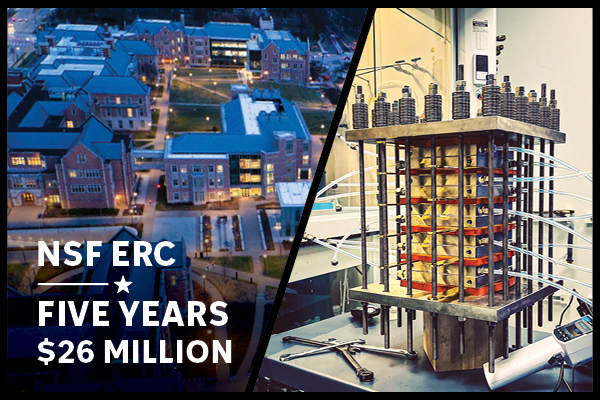- Lectrolyst Livewire
- Posts
- Introducing the Future of Farming: Electro-Agriculture
Introducing the Future of Farming: Electro-Agriculture
Lectrolyst's technology is revolutionizing agriculture from the ground up, starting from carbon dioxide.
You’re receiving this newsletter because Lectrolyst recognizes you as a key potential investor or partner.
Welcome to the Lectrolyst Livewire, where we bring you regular updates on our game-changing advancements in the fast-growing electrochemical CO2 utilization space. Stay informed on the latest innovations and applications of this technology that are shaping our future. If you wish to unsubscribe, click the link at the bottom of this page.
What is Electro-Agriculture?
As the global population soars, our food system is becoming increasingly resource-intensive contributing 1/3 of global greenhouse gas emissions and consuming almost half of all habitable land. The primary reason for this resource intensity is our reliance on photosynthesis which only has ~1% solar-to-food efficiency.
What if we could transcend these efficiency limitations?
Enter electro-agriculture – a groundbreaking reimagining of food production. By electrochemically converting CO2 to acetate and using it to produce food independently of photosynthesis, efficiency can be boosted by at least four times compared to photosynthesis. This would enable a massive reduction in agricultural land usage, eliminate the need for pesticides, and substantially decrease fertilizer consumption. Electro-agriculture allows food to be produced virtually anywhere including urban cities, arid deserts, or even deep space.
By electrochemically converting CO2 to acetate and using it to produce food independently of photosynthesis, efficiency can be boosted by at least four times compared to photosynthesis.

Cross-section of an electro-agriculture indoor farming system
The cornerstone to enabling electro-agriculture is our cutting-edge tandem CO2 electrolysis system that converts CO2 to CO and then transforms CO into acetate. While there are existing technologies for turning CO2 into CO, the leap to acetate is far more complex. Fortunately, Lectrolyst has made great strides in this area. Electro-agriculture systems are currently being developed using Lectrolyst’s core IP to produce both crops and edible fermented protein from acetate. By the end of this year, Lectrolyst aims to showcase a 10 kW system that can generate 10 kg of acetate from CO2 daily - the largest scale demonstration of this technology to date. Electro-agriculture is just a single facet of Lectrolyst’s capabilities, yet it holds the potential to disrupt the entire agriculture industry by improving efficiency, reducing environmental impacts, and streamlining the supply chain of our food system.
By the end of this year, Lectrolyst aims to showcase a 10 kW system that can generate 10 kg of acetate from CO2 daily - the largest scale demonstration of this technology to date.
The Team Revolutionizing Agriculture

Dr. Megan May, Dr. Bradie S. Crandall, Dr. Greg Hutchings, and Noure Sydney working in Lectrolyst’s facility.
Housed in the Innovation Space at the DuPont Experimental Station in Wilmington, DE, Lectrolyst was established in 2018 as a spin-off from the University of Delaware’s Department of Chemical & Biomolecular Engineering, one of the top 10 programs in the nation. Lectrolyst was co-founded by Dr. Greg Hutchings (President) and Prof. Feng Jiao (a key scientific advisor). Dr. Greg Hutchings brings Yale post-doc training, >20 research papers in the field, and 1 patent. Prof. Feng Jiao, who also directs the Center for Carbon Management at Washington University in St. Louis, is a world-class leader in electrolysis research with >100 papers in the field and 3 patents.
Since its inception, Lectrolyst has attracted top talent in the field. Dr. Shan Zhu, Director of Electrochemical Stack Engineering, brings over a decade of experience in scaling electrochemical systems and project management. Dr. Bradie S. Crandall, Associate Director of Technical Strategy, is a former Visiting Researcher at Washington University in St. Louis who pioneered the initial scale-up efforts of Lectrolyst’s core technology and led one of the first demonstrations of electro-agriculture for NASA. Dr. Shahryar Rabei, Senior Electrochemical Process Engineer, adds over 10 years of industry experience in process engineering and techno-economic modeling expertise. The team also includes a cadre of 7+ skilled scientists, engineers, and technicians, such as Dr. Megan May (Staff Electrochemical Scientist), Dr. Abbas Kazi (Electrochemical Stack Engineer), and Michael Pedalino (Lead Industrial Automation Engineer).
Key Updates:
Lectrolyst joins $28 million Acetate Consortium: We’re thrilled to be a part of this cutting-edge initiative funded by the Bill & Melinda Gates Foundation as well as the Novo Nordisk Foundation to transform CO2 into edible protein. Read more about it here:
Exclusive Technology Licensing Secured: Lectrolyst secured exclusive licensing rights to core IP from the University of Delaware:
[Jiao, F. et al (2024) Electrochemical generation of carbon-containing products from carbon dioxide and carbon monoxide (U.S. Patent No. 11,959,184 B2)]
NASA Validation of Electro-Agriculture: Leveraging Lectrolyst’s core IP, Team Nolux (featuring Co-Founder Prof. Feng Jiao and Assoc. Director of Technical Strategy Dr. Bradie S. Crandall) placed amongst the top 3 in the final phase of the NASA Deep Space Food Challenge which began with over 200 teams. Discover more here:
Lectrolyst Joins $26 Million Engineering Research Center: Lectrolyst is now a corporate partner of a $26 million National Science Foundation Research Center, focusing on electrochemical CO2 transformation into key intermediates like acetate for biomanufacturing. This center will be led by Lectrolyst Co-Founder Prof. Feng Jiao as co-principal investigator. Learn more about this initiative:
Want to Get Involved?
Lectrolyst is actively pursuing lead investors for an upcoming $2 million pre-seed VC fundraising round. We are also exploring new partnership opportunities to accelerate our growth and innovation. If you’re interested in joining us on this exciting journey, please contact Dr. Greg Hutchings at [email protected]. For more information on our groundbreaking work, visit us at www.lectrolyst.com.


